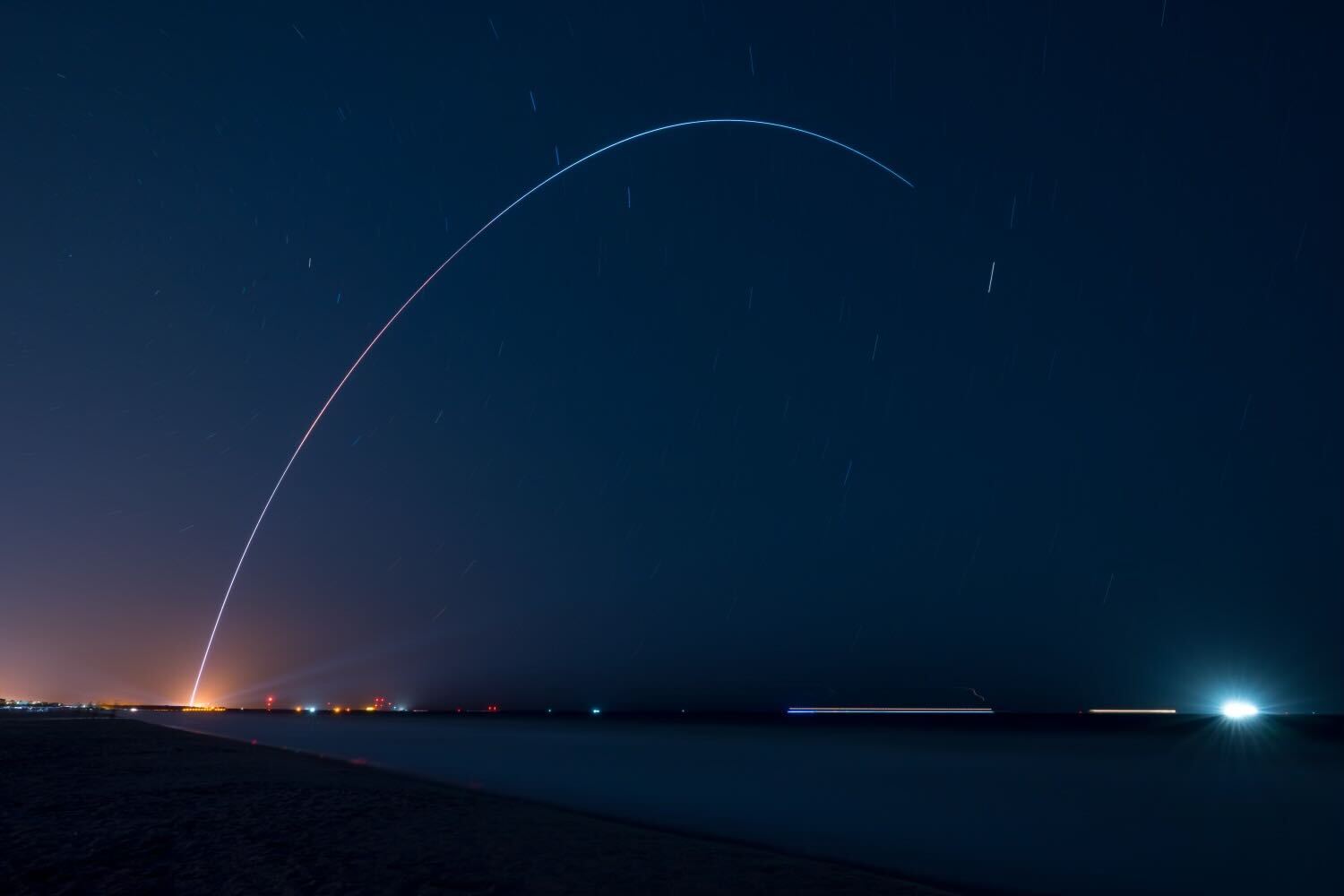Hello and welcome back to Max Q!
In this issue:
- Relativity Space’s Terran 1 reaches Max Q
- NRO lines up hyperspectral imagery providers
- News from Virgin Orbit and more
Relativity Space’s first launch fails to reach orbit, but proves its 3D-printing rocket tech works
Relativity Space achieved a massively important milestone just before 11:30 PM ET on Wednesday, with the first-ever flight of its 3D-printed rocket technology. Its Terran 1 rocket took off from Cape Canaveral in Florida, successfully clearing the pad and launch structure, and achieving “Max Q” — or the point during the launch sequence at which the vehicle is under the most pressure in terms of atmospheric resistance and stress — and also succeeded at cutting off its main engines and separating its first stage as intended. – Darrell Etherington

Image Credits: Relativity
America’s space-based spy agency awards six contracts to hyperspectral imagery providers
The U.S. National Reconnaissance Office (NRO) has awarded five-year study contracts to six space companies that provide hyperspectral satellite imagery — BlackSky, Orbital Sidekick, Pixxel, Planet, Xplore and HyperSat — as the agency seeks to expand its remote sensing capabilities.
The NRO, the arm of the Department of Defense that conducts space-based spying and surveillance, released a request for proposals from hyperspectral satellite operators last November. The awards announced today were granted under the agency’s Broad Agency Announcement (BAA) Framework, a program that’s used to rapidly acquire and integrate new space-based sensing technologies. The agency has previously awarded BAA contracts for radio frequency remote sensing and commercial radar technology.
An NRO spokesperson told TechCrunch it anticipates the value of each contract to be about $300,000, and that “they can quickly be scaled to much higher values as mission value, customer requirements, and on-orbit provider capabilities are confirmed.”

Image Credits: Pixxel
More news from TC and beyond
- ABL Space Systems scored a $60 million U.S. Space Force and Air Force STRATFI contract to build out its rapid response launch capabilities. (TechCrunch)
- Arkisys won a $1.6 million U.S. Space Force contract to demonstrate in-space robotic operations that could eventually be used to assemble satellites in space. (SpaceNews)
- Blue Origin released its report on the New Shepard launch failure, adding only that it expects to launch “soon.” (TechCrunch)
- Elon Musk said that some of the Starlink v2 mini satellites are experiencing issues, after some observers noticed a batch of the satellites were dropping orbits. (Elon Musk)
- Deloitte released a new report on the future of the space market. (Deloitte)
- Firefly Aerospace’s next Alpha launch will be a rapid response mission for the U.S. Space Force. (Firefly)
- Frontier Aerospace, an in-space propulsion startup, closed $10 million in new funding from AEI HorizonX. (Frontier)
- Impulse Space is moving into larger headquarters in Redondo Beach, California, to accommodate its growing team and manufacturing operations. (Impulse)
- ispace’s Hakuto-R lunar lander has successfully entered lunar orbit, with a moon landing anticipated in late-April. (ispace)
- Sierra Space’s Dream Chaser launch is once again delayed. (Ars Technica)
- SpaceX is reportedly lining up new funding from Saudi and Emirati investment firms, to the tune of multibillions of dollars. (The Information)
- Starliner’s Crew Flight Test has been delayed, and will fly after Axiom Mission 2, which is scheduled for early May. (NASA)
- Virgin Orbit is reportedly nearing a deal with Texas-based venture capitalist Matthew Brown for a $200 million investment, which would make Brown the launch company’s effective owner. (Reuters)
Max Q is brought to you by me, Aria Alamalhodaei. If you enjoy reading Max Q, consider forwarding it to a friend.
